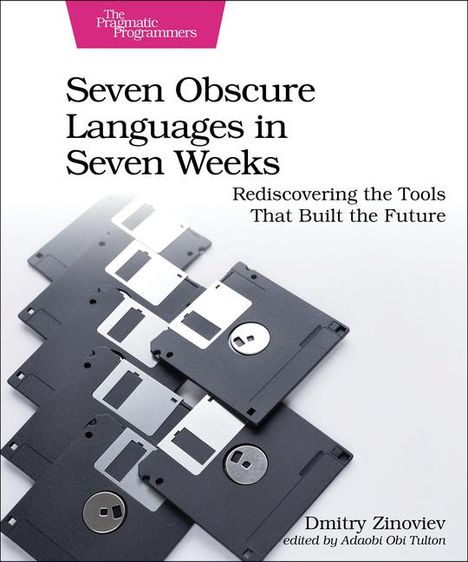Dmitry Zinoviev: Seven Obscure Languages in Seven Weeks, Kartoniert / Broschiert
Seven Obscure Languages in Seven Weeks
- Rediscovering the Tools That Built the Future
(soweit verfügbar beim Lieferanten)
- Verlag:
- Pragmatic Programmers, 11/2024
- Einband:
- Kartoniert / Broschiert
- Sprache:
- Englisch
- ISBN-13:
- 9798888650639
- Artikelnummer:
- 11993255
- Umfang:
- 272 Seiten
- Gewicht:
- 520 g
- Maße:
- 231 x 189 mm
- Stärke:
- 15 mm
- Erscheinungstermin:
- 12.11.2024
- Hinweis
-
Achtung: Artikel ist nicht in deutscher Sprache!
Klappentext
Immerse yourself in the intricate world of forgotten programming languages with Seven Obscure Languages in Seven Weeks. This comprehensive guide serves as a bridge to understanding and revitalizing legacy code, offering invaluable insights into the evolution of programming. With hands-on tutorials spanning languages from Forth and Simula to SNOBOL and m4, readers are equipped to maintain older systems and gain a broader perspective on problem-solving techniques. Whether you are a seasoned developer, a software historian, or just curious about the roots of modern coding, this book illuminates the rich tapestry of programming's past and sheds light on its present and future.
Venture into overlooked and long-forgotten programming languages that once stood at the forefront of technological innovation. From the stack-oriented design of Forth to the early object-oriented experiences in Simula, bridge the ever-widening chasm between contemporary code and legacy systems. If you find yourself ensnared by the challenges of updating or maintaining older systems, this book is the lifeline.
Unravel the fabric of seven programming languages by following practical tutorials and building small applications. Find out how Simula led to C++, what made APL so powerful, and why we still use m4 even to this day. Along the way, you'll broaden your problem-solving horizons, and develop diverse approaches to computation that still ripple through today's coding landscape. By the final chapter, you won't merely possess historical knowledge, you'll be equipped with production ready skills capable of tackling projects that interface with legacy code.
Trace the evolutionary lineage of programming to gain a predictive edge in anticipating future trends. After all, this isn't just a nostalgic trip - it's a roadmap to the past, present, and future of coding.
What You Need:
Various software tools and compilers are available for enthusiasts eager to explore the once-forgotten languages detailed in this book. Guidance is provided primarily for Linux users on accessing these older programming languages. This collection includes languages like m4, integral to the GNU Autoconf system, and other languages incorporated into the GNU ecosystem, such as APL, Forth, and Simula. For those with a penchant for nostalgia, there is the SNOBOL4.2, which can run using the DOSBox MS-DOS emulator. KRoC, an Occam compiler, works only with 32-bit architectures or in a docker. Suffolk University maintains Starset's modern implementation. Readers can find links to repositories of these development tools, ensuring they can fully immerse themselves in this intriguing journey.


